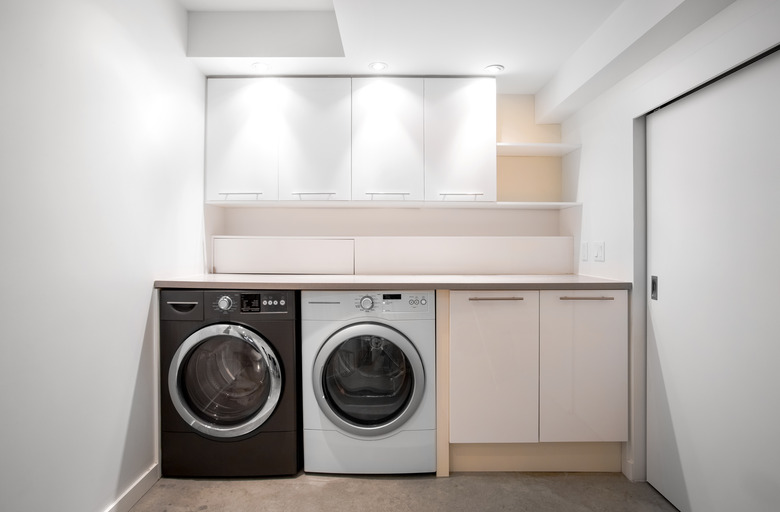How To Determine If A Sump Pump Check Valve Is Leaking
We may receive a commission on purchases made from links.
A sump pump operates by pumping out groundwater and rainwater from basements and sub-basements to help prevent flooding. Many sump pumps are equipped with check valves, which function in different ways depending on the model. On some models, the check valve prevents the backwash of pumped-out water back into the sump pit; on other models, where the discharge pipe connects to the sewer system, the valve prevents sewage from backwashing into the sump pit. Over time, it's possible for the check valve to develop leaks that may be caused by either loose connections to the pipes or a failing internal valve.
How to Find Out if Your Sump Pump's Check Valve Leaks
1. Locate and Remove the Check Valve Housing
Locate the check valve housing, which is made of metal or hard plastic with multiple bolts holding it in place. On some sump pumps, the check valve is on the top of the pump with two pipes running into the valve. On other pumps, the valve is attached to the discharge (outlet) pipe running toward the sewer line or outer wall. Loosen the bolts and remove the housing.
2. Examine the Check Valve Center Connection for Leaks
Inspect the center connection of the check valve for a leak, including inspecting the points where the pipes (especially the discharge pipe) connect to the valve. Feel around the valve for moisture or dripping water.
3. Test the Check Valve Connections for Leaks
Fill a 5-gallon bucket with water and slowly pour it down into the sump pump pit. The pump will then kick on and begin drawing water out. Watch the check valve connections to the pipes and the valve itself as the water drains.
4. Note the Location of Check Valve Leaks
Make a note of exactly where the leaks are occurring on the check valve. Wait until the pump shuts off. Then look in the sump pit to see if water is leaking from the intake pipe. If it is, this can be a sign that the check valve's internal valve is failing.
Warning
You can tighten the clamps holding the pipes to the check valve or tighten the center check valve bolts if you find any leaks on the body of the valve or near the pipe connections. However, you may want to hire a licensed plumber to repair the check valve if the leak is excessive or if water or sewage is coming back out of the intake pipe.
